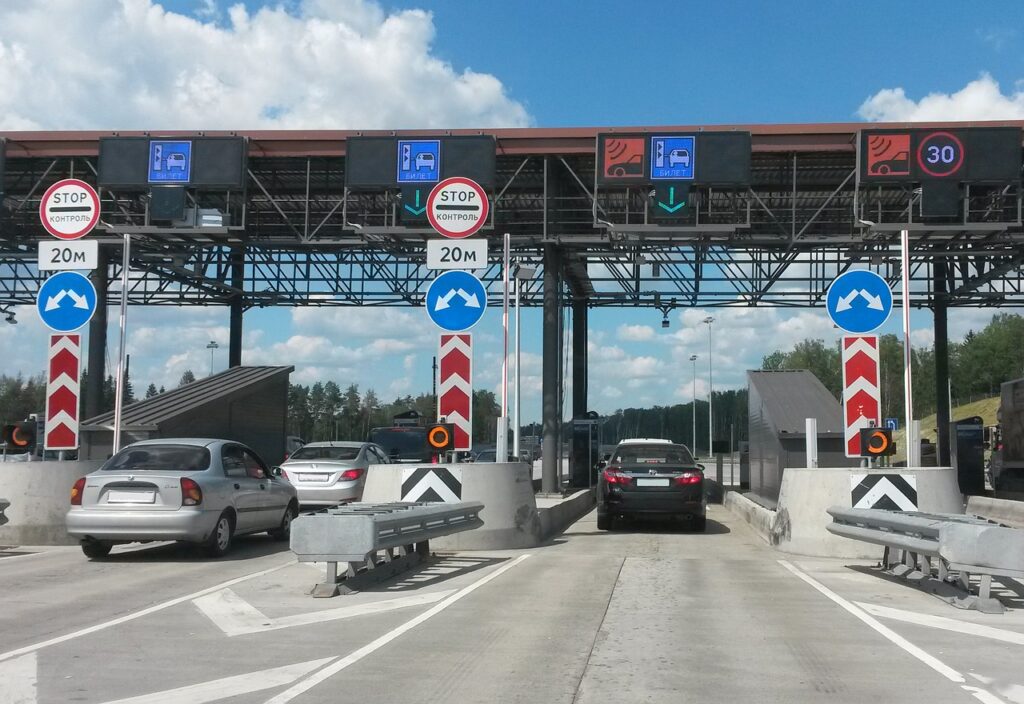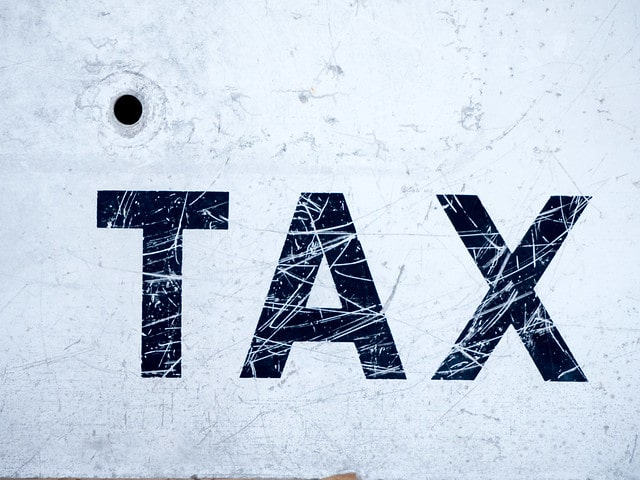Negotiated transactions are not necessarily market conform. Update on Temporary Framework: Number of approved and published covid-19 measures, as of 9 October 2020: 295* Legal basis: Article 107(2)(b): 32; Article 107(3)(b): 248; Article 107(3)(c): 23 – Average number of measures per Member State: 10.5 – Median number of measures per Member State: 12 – Mode number of measures per Member […]
State Aid Law
Blog
State Aid Uncovered Blog
In Lexxion’s State Aid Uncovered blog, Prof. Phedon Nicolaides publishes weekly critical analyses of recent State aid judgments and decisions. Each post presents the key points of a court judgment or EU Commission decision, places it in the context of similar case law or practice, assesses the underlying reasoning and highlights any inconsistencies or contradictions.
Guest contributions from other State aid experts will also be published on the blog at irregular intervals to complement the content of the blog posts.
- General Court ×
13. October 2020 |
State Aid Uncovered
by Phedon Nicolaides
23. December 2019 |
State Aid Uncovered
by Phedon Nicolaides
A judicial decision on interim measures is a selective measure. The private investor test does not apply to judicial decisions on interim measures. Introduction On 11 December 2019, in case C‑332/18 P, Mytilinaios Anonymos Etairia — Omilos Epicheiriseon v European Commission, the Court of Justice probably wrote the last chapter in a long-running case concerning privileges that had been granted […]
3. December 2019 |
State Aid Uncovered
by Phedon Nicolaides
Activities which are inseparable from the exercise of official powers are non-economic. Introduction Pure research whose results are widely disseminated is undoubtedly a non-economic activity. Research reports are often published on the internet. But the design and management of a research organisation’s website can be an economic activity. Plenty of private companies provide these services for a fee. Does […]
19. November 2019 |
State Aid Uncovered
by Phedon Nicolaides
Contractual obligation to provide compensation that does not exceed the loss of income is not State aid. Introduction When is a company entitled to compensation by the state? The easy answer is “when the state is liable for damage”. However, it may be possible for a company to claim compensation from the state when the state has assumed contractual obligations. […]
22. October 2019 |
State Aid Uncovered
by Phedon Nicolaides
Member States may reduce the amount of State aid they grant and companies may not claim they have a right to State aid. Introduction Close to 60% of all aid granted to industry and services in the EU goes to support environmental protection, energy efficiency and the generation of electricity from renewable sources of energy. However, as technology improves, the […]
18. June 2019 |
State Aid Uncovered
by Phedon Nicolaides
Progressive tax rates that are consistent with the objective of the tax system are not necessarily selective. Introduction Member States are free to design their corporate tax systems as long as they do not grant State aid or infringe fundamental internal market freedoms. A question that arises in discussions on what Member States may or may not do when designing […]
11. June 2019 |
State Aid Uncovered
by Phedon Nicolaides
A competitor who wants to challenge a Commission decision authorising State aid without a formal investigation must, first, show that it is seriously harmed by the aid. Introduction This week’s article reviews two judgments: one on unlimited state guarantees granted by France [case T-135/17, Scor v European Commission][1] and another on aid that was found not to affect trade between Member […]
21. May 2019 |
State Aid Uncovered
by Phedon Nicolaides
Non-economic activities have to be accounted separately from economic activities. The exercise of public tasks assigned by the state cannot protect an undertaking from State aid rules. State aid distorts competition even when it aims to remedy distortions. Introduction Ports, like other transport infrastructures, may operate under public obligations some of which may be of economic and some of non-economic […]
30. April 2019 |
State Aid Uncovered
by Phedon Nicolaides
A Commission decision that affects the legal position of an undertaking is actionable before EU courts. The opening of the formal investigation procedure must lead the Member State concerned to suspend the aid measure and may result in a recovery ruling by a national court. The Commission must be consistent in its reasoning. If it cannot use certain information at […]
16. April 2019 |
State Aid Uncovered
by Phedon Nicolaides
State measures which are linked and produce both positive and negative effects, must be considered together to determine whether they confer a net advantage to undertakings. Counter-guarantees must be taken into account to determine the existence of advantage even if they are provisional. Introduction Member States have in a number of cases tried to defend tax reductions or tax […]
- General Court ×
13. October 2020 |
State Aid Uncovered
by Phedon Nicolaides
Negotiated transactions are not necessarily market conform. Update on Temporary Framework: Number of approved and published covid-19 measures, as of 9 October 2020: 295* Legal basis: Article 107(2)(b): 32; Article 107(3)(b): 248; Article 107(3)(c): 23 – Average number of measures per Member State: 10.5 – Median number of measures per Member State: 12 – Mode number of measures per Member […]
23. December 2019 |
State Aid Uncovered
by Phedon Nicolaides
A judicial decision on interim measures is a selective measure. The private investor test does not apply to judicial decisions on interim measures. Introduction On 11 December 2019, in case C‑332/18 P, Mytilinaios Anonymos Etairia — Omilos Epicheiriseon v European Commission, the Court of Justice probably wrote the last chapter in a long-running case concerning privileges that had been granted […]
3. December 2019 |
State Aid Uncovered
by Phedon Nicolaides
Activities which are inseparable from the exercise of official powers are non-economic. Introduction Pure research whose results are widely disseminated is undoubtedly a non-economic activity. Research reports are often published on the internet. But the design and management of a research organisation’s website can be an economic activity. Plenty of private companies provide these services for a fee. Does […]
19. November 2019 |
State Aid Uncovered
by Phedon Nicolaides
Contractual obligation to provide compensation that does not exceed the loss of income is not State aid. Introduction When is a company entitled to compensation by the state? The easy answer is “when the state is liable for damage”. However, it may be possible for a company to claim compensation from the state when the state has assumed contractual obligations. […]
22. October 2019 |
State Aid Uncovered
by Phedon Nicolaides
Member States may reduce the amount of State aid they grant and companies may not claim they have a right to State aid. Introduction Close to 60% of all aid granted to industry and services in the EU goes to support environmental protection, energy efficiency and the generation of electricity from renewable sources of energy. However, as technology improves, the […]
18. June 2019 |
State Aid Uncovered
by Phedon Nicolaides
Progressive tax rates that are consistent with the objective of the tax system are not necessarily selective. Introduction Member States are free to design their corporate tax systems as long as they do not grant State aid or infringe fundamental internal market freedoms. A question that arises in discussions on what Member States may or may not do when designing […]
11. June 2019 |
State Aid Uncovered
by Phedon Nicolaides
A competitor who wants to challenge a Commission decision authorising State aid without a formal investigation must, first, show that it is seriously harmed by the aid. Introduction This week’s article reviews two judgments: one on unlimited state guarantees granted by France [case T-135/17, Scor v European Commission][1] and another on aid that was found not to affect trade between Member […]
21. May 2019 |
State Aid Uncovered
by Phedon Nicolaides
Non-economic activities have to be accounted separately from economic activities. The exercise of public tasks assigned by the state cannot protect an undertaking from State aid rules. State aid distorts competition even when it aims to remedy distortions. Introduction Ports, like other transport infrastructures, may operate under public obligations some of which may be of economic and some of non-economic […]
30. April 2019 |
State Aid Uncovered
by Phedon Nicolaides
A Commission decision that affects the legal position of an undertaking is actionable before EU courts. The opening of the formal investigation procedure must lead the Member State concerned to suspend the aid measure and may result in a recovery ruling by a national court. The Commission must be consistent in its reasoning. If it cannot use certain information at […]
16. April 2019 |
State Aid Uncovered
by Phedon Nicolaides
State measures which are linked and produce both positive and negative effects, must be considered together to determine whether they confer a net advantage to undertakings. Counter-guarantees must be taken into account to determine the existence of advantage even if they are provisional. Introduction Member States have in a number of cases tried to defend tax reductions or tax […]
- General Court ×
13. October 2020 |
State Aid Uncovered
by Phedon Nicolaides
Negotiated transactions are not necessarily market conform. Update on Temporary Framework: Number of approved and published covid-19 measures, as of 9 October 2020: 295* Legal basis: Article 107(2)(b): 32; Article 107(3)(b): 248; Article 107(3)(c): 23 – Average number of measures per Member State: 10.5 – Median number of measures per Member State: 12 – Mode number of measures per Member […]
23. December 2019 |
State Aid Uncovered
by Phedon Nicolaides
A judicial decision on interim measures is a selective measure. The private investor test does not apply to judicial decisions on interim measures. Introduction On 11 December 2019, in case C‑332/18 P, Mytilinaios Anonymos Etairia — Omilos Epicheiriseon v European Commission, the Court of Justice probably wrote the last chapter in a long-running case concerning privileges that had been granted […]
3. December 2019 |
State Aid Uncovered
by Phedon Nicolaides
Activities which are inseparable from the exercise of official powers are non-economic. Introduction Pure research whose results are widely disseminated is undoubtedly a non-economic activity. Research reports are often published on the internet. But the design and management of a research organisation’s website can be an economic activity. Plenty of private companies provide these services for a fee. Does […]
19. November 2019 |
State Aid Uncovered
by Phedon Nicolaides
Contractual obligation to provide compensation that does not exceed the loss of income is not State aid. Introduction When is a company entitled to compensation by the state? The easy answer is “when the state is liable for damage”. However, it may be possible for a company to claim compensation from the state when the state has assumed contractual obligations. […]
22. October 2019 |
State Aid Uncovered
by Phedon Nicolaides
Member States may reduce the amount of State aid they grant and companies may not claim they have a right to State aid. Introduction Close to 60% of all aid granted to industry and services in the EU goes to support environmental protection, energy efficiency and the generation of electricity from renewable sources of energy. However, as technology improves, the […]
18. June 2019 |
State Aid Uncovered
by Phedon Nicolaides
Progressive tax rates that are consistent with the objective of the tax system are not necessarily selective. Introduction Member States are free to design their corporate tax systems as long as they do not grant State aid or infringe fundamental internal market freedoms. A question that arises in discussions on what Member States may or may not do when designing […]
11. June 2019 |
State Aid Uncovered
by Phedon Nicolaides
A competitor who wants to challenge a Commission decision authorising State aid without a formal investigation must, first, show that it is seriously harmed by the aid. Introduction This week’s article reviews two judgments: one on unlimited state guarantees granted by France [case T-135/17, Scor v European Commission][1] and another on aid that was found not to affect trade between Member […]
21. May 2019 |
State Aid Uncovered
by Phedon Nicolaides
Non-economic activities have to be accounted separately from economic activities. The exercise of public tasks assigned by the state cannot protect an undertaking from State aid rules. State aid distorts competition even when it aims to remedy distortions. Introduction Ports, like other transport infrastructures, may operate under public obligations some of which may be of economic and some of non-economic […]
30. April 2019 |
State Aid Uncovered
by Phedon Nicolaides
A Commission decision that affects the legal position of an undertaking is actionable before EU courts. The opening of the formal investigation procedure must lead the Member State concerned to suspend the aid measure and may result in a recovery ruling by a national court. The Commission must be consistent in its reasoning. If it cannot use certain information at […]
16. April 2019 |
State Aid Uncovered
by Phedon Nicolaides
State measures which are linked and produce both positive and negative effects, must be considered together to determine whether they confer a net advantage to undertakings. Counter-guarantees must be taken into account to determine the existence of advantage even if they are provisional. Introduction Member States have in a number of cases tried to defend tax reductions or tax […]













